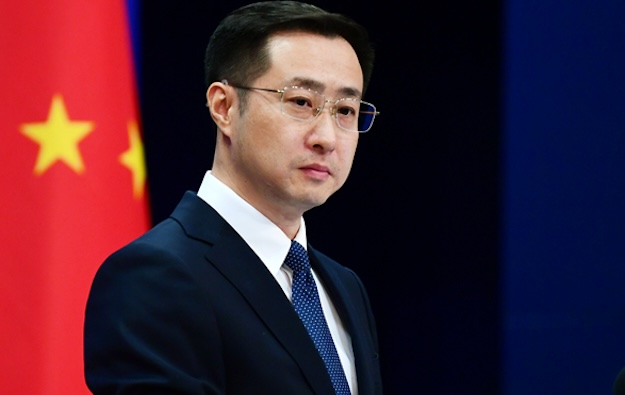
China’s “position on cross-border gambling is consistent and clear,” said Lin Jian (pictured), a Ministry of Foreign Affairs spokesperson, during a regular media briefing in Beijing on Monday.
Mr Lin was responding to a question from a journalist regarding a message the same day from China’s embassy in Singapore, warning Chinese citizens to “stay away from gambling” while in that city state, which has a casino industry legally sanctioned by the latter nation.
The Chinese-language message from the embassy translated as: “Even if a casino establishment is set up legally outside the country’s [mainland China’s] borders, citizens may allegedly come to violate our country’s laws over [involvement in] cross-border gambling, especially [via] participation in organising gambling… that can result in [such citizens] being held legally liable for their acts.”
As per the China foreign ministry’s official English-language transcript of Monday’s briefing, a media representative had asked “what stipulates Chinese citizens breaking domestic laws on gambling when they are in another country?”.
Mr Lin stated: “China’s position on cross-border gambling is consistent and clear.”
He added: “China allows no Chinese capital to be invested in overseas casinos, allows no Chinese nationals to engage in operating overseas casinos, and allows no overseas casinos to entice Chinese nationals into gambling.”
He further noted: “China is willing to continue advancing cooperation with relevant parties, step up the fight against cross-border crimes, and safeguard regional social stability and order, and people’s life and property.”
The ministry official added: “On your specific question, I’d refer you to relevant legal provisions or competent authorities.”
China’s amended criminal code outlaws organising mainland Chinese citizens to gamble abroad. It came into effect from March 1, 2021.
Mr Lin mentioned during the Monday briefing session, addressing a separate question, that what China terms the Lancang-Mekong Cooperation countries – China, Cambodia, Laos, Myanmar, Vietnam and Thailand – had “worked together to combat online gambling, telecom fraud and other cross-border crimes, which effectively protected the security of the region”.
Related articles